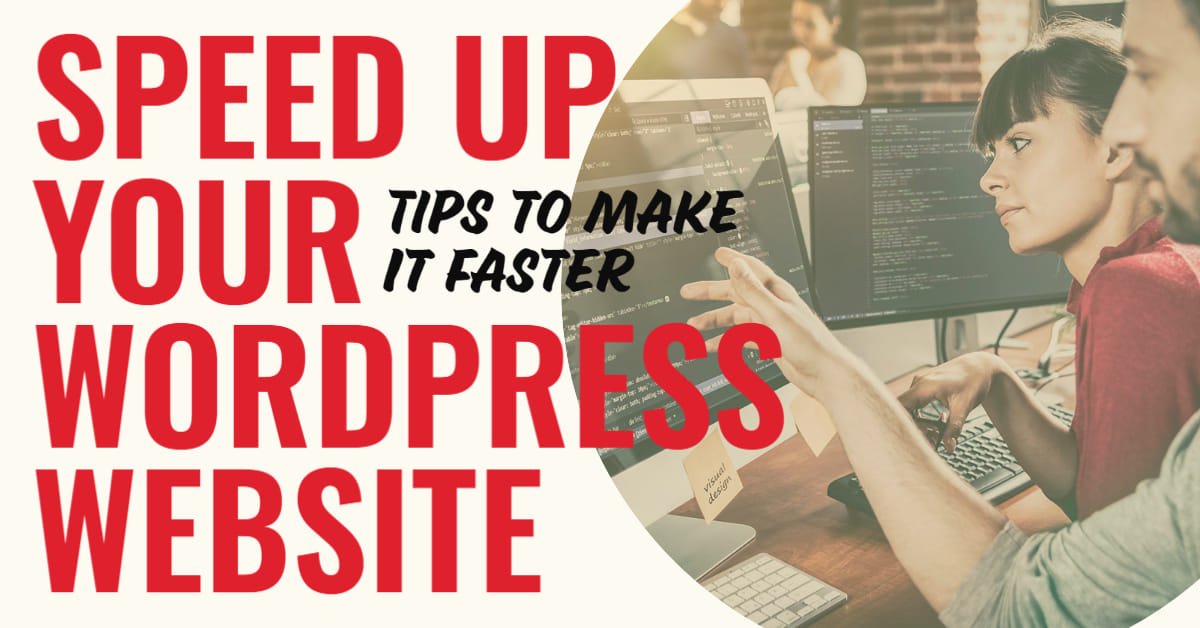
If you are like most WordPress site owners, you want your website to be as fast as possible. A slow website can hurt your business in a number of ways, including lower search engine rankings, fewer conversions, and less revenue. In this blog post, we will discuss some tips that will help speed up your WordPress website.
How do I increase WordPress speed?
Tip #01: Choose a Fast Hosting Provider
The first step in speeding up your WordPress site is choosing a hosting provider that’s fast and reliable. This might seem like an obvious step, but it’s one that a lot of people overlook. When you’re choosing a host, be sure to ask them about their page loading times and uptime guarantees.
Tip #02: Optimize Your Images
Images are often the culprit when it comes to slow WordPress sites. One way to optimize your images is by using a plugin like WP Smush. This plugin will compress your images so they load faster on your site.
Tip #03: Use a Caching Plugin
A caching plugin is another great way to speed up your WordPress site. A caching plugin creates static copies of your pages and posts, which means that they’ll load faster for visitors. There are a lot of great caching plugins to choose from, but we recommend using WPRocket.
Tip #04: Use a Content Delivery Network
A content delivery network (CDN) is a system of distributed servers that deliver content to visitors based on their location. Using a CDN can help speed up your WordPress site by delivering your content faster to visitors who are far away from your server.
Tip #05: Minimize Your Plugins
One of the great things about WordPress is that there are a ton of plugins available to add extra features to your site. However, too many plugins can slow down your site, so it’s important to only use the ones that you really need.
Tip #06: Optimize Your Database
Over time, your WordPress database can become bloated with unnecessary data. You can optimize your database by using a plugin like WP-Optimize. This plugin will remove any redundant data from your database and help speed up your WordPress site.
Tip #07: Enable Gzip Compression
Gzip compression is a way to compress files so they take up less space on your server. This can help speed up your WordPress site because it will reduce the amount of data that needs to be transferred between your server and visitors’ browsers.
Tip #08: Use a Lightweight Theme
The theme you use on your WordPress site can also affect its speed. If you’re using a heavy theme, it’s going to take longer for your pages to load. Instead, try using a lightweight theme that’s designed for speed or hire a WordPress web design company like ours to create a custom theme optimized for speed.
Tip #09: Use a Fast WordPress Theme Framework
A WordPress theme framework is a great way to create fast and responsive WordPress sites. A good WordPress theme framework will have a minimal amount of code and will be designed for speed.
Tip #010: Defer JavaScript Loading
JavaScript is a great way to add extra features to your WordPress site. However, if not used properly, it can slow down your site. To avoid this, you can use a plugin like Async Javascript to defer the loading of JavaScript files.
Tip #11: Optimize Your Homepage
Your homepage is often the most visited page on your WordPress site. As such, it’s important to make sure that it’s optimized for speed. One way to do this is by only displaying the most important information on your homepage and keeping the rest of the content in separate pages.
Tip #12: Use Lazy Load
Lazy load is a technique that delays the loading of images until they’re needed. This can help speed up your WordPress site because it means that images won’t be loaded until visitors scroll down to them. You can use a plugin like Lazy Load for Images to implement lazy load on your WordPress site.
Tip #13: Minimize Your Code
The code that makes up your WordPress site can also affect its speed. To minimize your code, you can use a plugin like Autoptimize. This plugin will minify your HTML, CSS, and JavaScript files so they take up less space on your server.
Tip #14: Avoid Hotlinking
Hotlinking is when another website links to an image or file on your server. This can cause your server to slow down because it has to process the request for the image or file. To avoid hotlinking, you can add a code snippet to your .htaccess file.
Tip #15: Keep WordPress Updated
One of the most important things you can do to speed up your WordPress site is to keep it updated. WordPress releases new versions of the software regularly, which include security fixes and performance improvements.
Tip #16: Use a Cloud Hosting Provider
Cloud hosting is a type of web hosting that uses multiple servers to store your website’s files. This can help speed up your WordPress site because it means that you’ll have more resources available to you. Cloud hosting providers like Google Cloud Platform offer built-in caching and other performance enhancements.
Final thoughts
If you follow these tips, you should see a significant speed increase in your WordPress site. Remember, a faster website means happier visitors and more conversions. So, don’t wait to start implementing these tips!
If you need help speeding up your WordPress site, our team of experts at Graticle can help. We offer a variety of services, including website speed optimization, that can help you improve the performance of your site. Contact us today to learn more! (360) 450-3711





